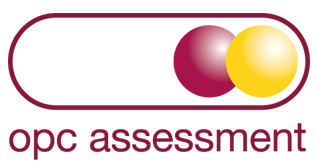In today’s challenging recruitment environments, Jo Lawrence, joint CEO, from the Occupational Psychology Centre (the OPC) shares some advanced tools and services that can help to remove some HR headaches.

Navigating modern recruitment demands, talent acquisition teams face significant challenges, from managing high-volume applications to ensuring fair and inclusive but efficient processes.
Jo Lawrence, joint CEO at the OPC said, “Managing large numbers of applicants for key safety-critical roles, like train drivers, and balancing organisational needs are concerns shared by many clients. Ensuring fair and effective recruitment practices while enhancing the representation of women and minorities, and yet selecting the best-fit applicants for a role are ongoing challenges.”
“These challenges are further compounded by shifting candidate expectations and multiple-role applications. To succeed, talent acquisition teams must adopt adaptable, efficient strategies that can quickly respond to changing demands, attract top talent, and align with organisational goals.”
With over three decades of safety-critical expertise, the OPC has partnered UK and global rail and transport clients. They provide bespoke safety solutions and tailored assessment services for safety-critical industries, supporting large-scale and high-profile recruitment projects, enhancing team performance, identifying top talent, and developing a safer workplace culture.
Supporting High-Volume Recruitment Projects
The OPC has extensive experience in supporting, overseeing or fully-managing talent recruitment projects for a wide variety of roles across the railway and in other industries. They’ve handled everything from large-scale train driver recruitment projects with thousands of applicants to high-profile director-level searches with just a handful of candidates.
A particular recurring challenge that talent managers share is effectively pre-screening applicants. In this digital age and post-pandemic, there has been an accelerated shift towards online recruitment processes.
To support this, the OPC can design bespoke and tailored pre-screening questionnaires, for any role, helping clients select candidates that meet their specific organisational and role requirements. Using specialist psychologist expertise, an online pre-screening questionnaire can include:

‘Killer’ Questions: These are non-negotiable questions like “Are you able to work shifts?” or key elements on the role functionality like “Are you happy to wear a uniform?” to quickly filter out candidates that don’t fit the profile. They are usually single choice or ‘Yes/No’ answers.
Job Preference Questions: Exploring candidates’ preferences and alignment with job demands, such as safety and rule adherence or teamwork. Candidates are asked to select what type of job tasks they might like to undertake within a role. These preference questions help assess if a candidate is likely to be suited to the role and meet the organisation’s standards. They can be tailored to the organisation’s needs and customised for each role.
Role-Specific Questions: This explores a candidate’s understanding of the role by asking them to rank order the key top three and bottom three factors from a list. So, for example statements like “Working quickly”, “Being safe” or “Following procedures.”
Mini-Situational Judgement Questions: These questions simulate role-specific scenarios and may include 3 or 4 questions. Situational Judgement questions can help predict job performance, as they relate to real job tasks. Candidates can see them as more relevant because they are based on actual job function examples.
Knowledge of the Organisation: This section can assess how well candidates know the company they’re applying for through multiple-choice questions.
Jo Lawrence, explains: “We’re always looking for ways to remove as many headaches as possible from our client’s recruitment searches. Online pre-screening questionnaires save HR teams huge amounts of time and money as well as standardising this part of the HR process, particularly if many people are involved with reviewing applications. Whether it’s five or thousands of applicants, these tools streamline the shortlisting process. This tailored approach means a list of ‘good-fit’ candidate can be quickly and efficiently produced.”
Online Psychological Assessment Tools
With smaller talent pools, it becomes essential to identify the best candidates who are most likely to succeed in role and perform safely and effectively. OPC Assessment has over sixty assessment tools, available digitally or in paper and pencil format. Many are designed specifically for safety-critical roles, developed and researched over many years, with the majority available online.
There is a wide variety of assessment tools and exercises which can be considered, including:
- Ability tests assess for one or more role-specific competency e.g., concentration, verbal ability or checking. For example, the Core Skills Diagrammatic Reasoning Test (CoreD) helps assess visual problem-solving skills, essential for roles like engineers or track workers.
- Personality questionnaires can help guide recruiters on an applicant’s personality factors, behaviours, or attitudes. For example, when selecting for bus or tram drivers, a recruiter might want to assess an applicant’s level of cautiousness or conscientiousness using the Safe Personality Questionnaire (SAFEPQ). This tool asks candidates to rank statements on an agree/disagree scale. Ideally, personality questionnaires should be paired with an exploratory interview with the candidate. Interview prompt forms are also available with many OPC Assessment personality questionnaires.
- Thirdly, a Situational Judgement Test might also be considered, E.g., the Magnificent 7 Situational Judgment test (M7SJT) which assesses seven key competencies such as conscientiousness, motivation, and risk management. These tests help indicate how a candidate might perform in role using job-related scenarios, which can provide an insight into their suitability for a safety-critical role.
The OPC expert team will review job descriptions and person specifications with the client to fully understand the role requirements. Based on this, they’ll recommend appropriate assessment tools, providing all the relevant details. In addition to assessment tool recommendations, the OPC can provide clients with flexible options for managing their assessment process.
Flexible Testing Support through the Bureau Service
To use psychometric tools correctly, recruiters need specific training. If clients aren’t suitably qualified to administer and interpret psychometric tools, they can either undergo specialist psychometric test training (TUO-A) provided by OPC Assessment or use the OPC’s Bureau Service. The OPC team can oversee and manage the entire psychometric process – from candidate invitations through to scoring and short-listing, or just support on test administration and interpretation. Some clients opt for a hybrid approach, using our Bureau Service while working towards their own TUO-A certification.
The Bureau Service is an excellent, efficient solution for stretched HR teams. It provides tailored assessment solutions, expert guidance, that are scalable for any role or recruitment project and ensures a fair, high-quality recruitment shortlist.
The OPC operates both in the UK and internationally. OPC Assessment’s user-friendly online testing platform, Candela™, allows candidates to take tests from any location, making our tests accessible to clients worldwide.
A Train Operator client said: “As industry experts in their field, we’ve used OPC Assessment for many years. We’ve always found them friendly and very supportive for our wide-ranging candidate assessment needs.”
OPC Assessment’s Online testing platform, Candela ™
OPC Assessment continues to keep pace with the shift to digital recruitment through Candela™, their secure, user-friendly, online platform designed to simplify even the most demanding talent acquisition projects. With quality features that streamline assessments and discover potential, Candela™ helps clients globally make data-driven hiring decisions and enhance team performance, all while easing the challenges of managing recruitment to any scale.
Candela™ houses a comprehensive suite of innovative and practical psychometric tools, including ability, situational judgment, and personality assessments. These tools efficiently evaluate candidates’ skills, abilities, and behaviours, while allowing clients to customise their assessment journeys. The platform’s pre-screening tools handle both high-volume and smaller recruitment projects, accelerating shortlisting and ensuring fair, consistent evaluations. This efficiency saves time and costs, while supporting swift and accurate hiring decisions.
Candela™ supports effective candidate management. It consolidates candidate information, sends automated email invites and reminders, tracks candidate progress, and provides performance results and reports at the touch of a button, simplifying management for talent acquisition teams. Recruiters can easily track the status of candidates within each project in real-time for each assigned assessment, making it easy to monitor progress and completion of the assessment journey.
With free registration and a pay-as-you-use model, Candela™ is cost-effective and scalable for any number of candidates. It offers registered users the ability to setup assessments anytime, anywhere. The OPC continues to develop and update the system to enhance user experience.
David Holloway, Systems Development Manager at OPC Assessment said, “We are dedicated to offering innovative digital solutions that simplify recruitment and assessment for HR teams. Recent Candela™ updates include a Time Limit Extender to accommodate a candidate’s individual needs in line with a client’s HR policies and new candidate monitoring features that support managers with unsupervised candidate testing.”
Evaluating the success of a recruitment process
Evaluating recruitment success is much easier with digital tools and online assessments. Recruiters can quickly generate reports or export large data sets to make informed decisions about their process. Success rates for each tool can be reviewed, and adjustments like changing ‘cut off’ scores can enhance applicant quality. Candidate drop-out rates and assessment journey data could also help determine the right number of candidates to invite.
Validating your selection methods
The OPC can also conduct tailored validation studies to ensure clients are using the most effective psychometric tools for their recruitment process. A validation study can help identify and remove or replace assessment tools that don’t contribute to better decision-making, ultimately improving job and training performance.
Assessment tool data can also be used for comparative analysis. For instance, an organisation might want to compare the quality of its applicants against a national sample of candidates. Additionally, it can be valuable to evaluate employee performance on specific assessments in relation to their later training outcomes or job performance. For example, using scores from the Safe Concentration and Attention Test (SCAAT) at selection may be useful to predict those employees who might be more at risk of a safety incident.
Jo Lawrence, joint CEO at the OPC, summed up: “As talent acquisition processes grow more complex, the OPC are committed to providing innovative recruitment solutions that simplify the demanding pressures of aligning organisational needs and candidate expectations for HR teams. With tools like Candela™, and our validation service we streamline assessment and pre-screening to help clients make informed, evidence-based hiring decisions, ensuring they select top talent while maintaining fairness and process efficiency.”
If you think OPC Assessment can help streamline your talent acquisition processes get in touch with the friendly team.

E: admin@theopc.co.uk T: +44 (0)1923 234646 W: www.theopc.co.uk
Manufacturing & Engineering Magazine | The Home of Manufacturing Industry News















